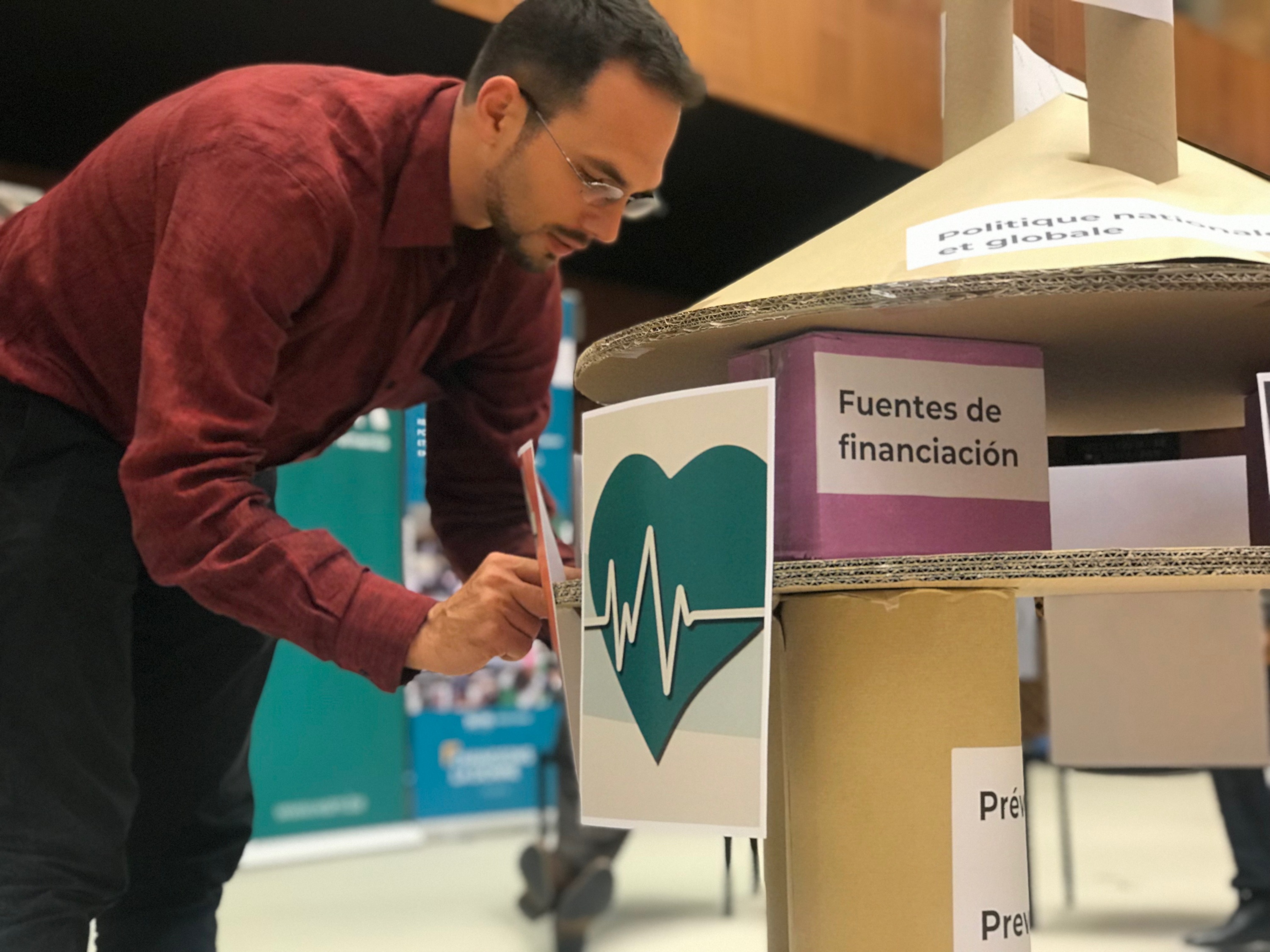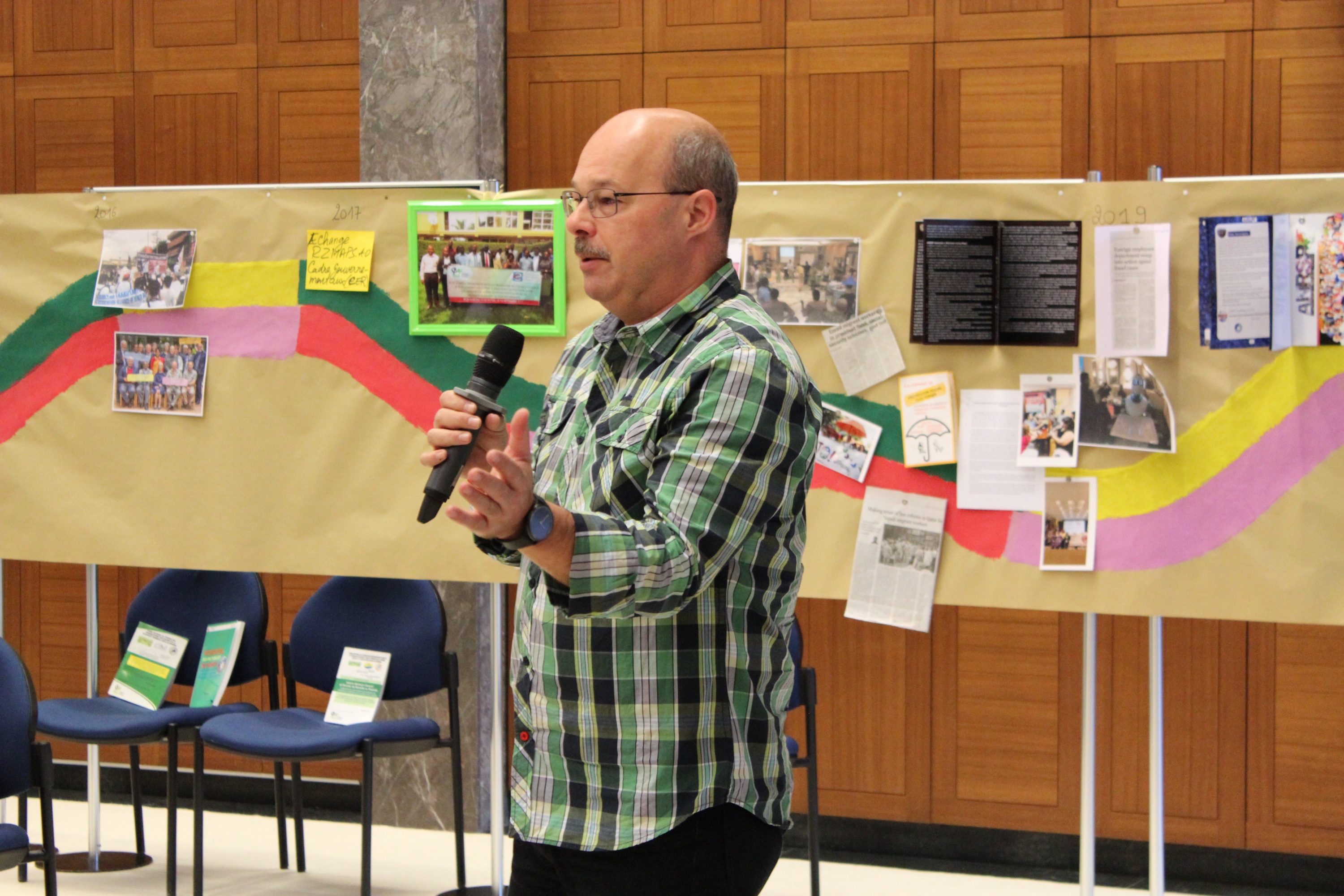We are known to fight for social protection for all. -Maybe you were already aware of the fact that we achieve better results by uniting partner organisations at country and continental level. However, as of 2020 we also unite our partners at the intercontinental level. The Global Social Protection Week, which took place in Geneva end of November 2019, was the ideal scene for the inauguration. Naturally, WSM is strongly convinced of the value of this cooperation. Moreover, our partner organisations are equally enthusiastic about this brand-new cooperation.
WSM and its partner organisations were well represented at this first Global Social Protection Week. We weren’t just present, our voice has been clearly heard. Thanks to several interventions, the spotlight regularly turned to WSM and its partners, and the latter could directly convey their opinions. Altagracia Jimenez, from the Dominican AMUSSOL, was the first to act (see video; Altagracia Jimenez- Spanish). Later, Sulistri Afrileston of the Indonesian K-SBSI was able to offer her interesting contribution (see video: Sulistri Jimenez- English), just like Youssef El Otmani of the ACV and Ramesh Badal of the Japanese GEFONT.
It was the first time WSM and its thematic network were both present at an event on a global scale. This provided WSM with the ideal opportunity to officialise and concretise its cooperation at this level. In the two days following the conference, WSM brought its partners together by a selection of delegates per continent. What is the goal of cooperation on this intercontinental level? It’s similar to what has already been done on both national and continental level: allowing partners to interact with each other, learn from each other, and engage with policy together on the topic of social protection.
This all sounds nice in theory. However, when taking a closer look at the work of our various partner organisations, it soon becomes obvious that their field of action is often concentrated within their countries, or in many cases even within specific regions. Their activities range from developing mutual health organisations to capacity building of vulnerable groups. The Guatemalan MTC trade union is such a movement that focusses on one particular region, namely the agriculture-oriented department San Marcos. “We protect and improve labour rights of farmers in this region, who are mostly coffee producers” says Justo Jiménez of the MTC. Thus the MTC mostly works on the regional level. Nevertheless, it is essential to cooperate on an intercontinental level: “Thanks to this cooperation we were able to exchange experiences. There are also some partners from other countries who already gained access to international institutions like the International Labour Organisation. They can file a complaint on our behalf”, says Justo. In this way, a regional organisation such as the MTC can be heard at the highest level.
“Problems in the field of social protection don’t just occur in Burundi or Congo, but also in Europe and America”
Justo’s opinion is shared by many others. Aïsha Belem, of the Burkinabé organisation RAMS, sees cooperation as crucial: “Not every country develops at the same speed. By being part of this network, we can adopt good practices from other countries and implement them here.” Idesbald Nsabimana of the Burundese MUNASA clarifies that ‘social protection’ is a global theme and as such should be dealt with at the global level. “Problems in the field of social protection don’t just occur in Burundi or Congo, but also in Europe and America,” says Idesbald. “Therefore it is better to look for solutions for every country, together.”
The fact that people are convinced of this approach became very apparent at our first gathering. Two days of exchange and cooperation generated a strong feeling of solidarity. But solidarity alone doesn’t make the world better. The network also used this meeting to reach a consensus on their joint vision text, that will serve as a guideline for its future work. There were also negotiations to achieve a joint strategy. That strategy is now being developed into an action plan for the coming years.
It was already a successful start. “Now it is the time to walk the same path together,” says the Bolivian Jhefferson Yugar (CRISOL), and he adds: “not everyone by themselves, but hand in hand.”
Video - International cooperation, local impact
Interviews
Justo Jimenez - MTC (Spanish)
Jhefferson Yugar - CRISOL (Spanish)
Gauri Augustine - AREDS (English)
Errol Alonzo Samarista - IYCW (English)
Aïsha Belem - RAMS (French)
Idesbald Nsabimana - MUNASA (French)
Stijn Sintubin - ACV (Dutch)
Tom Joos - CM (Dutch)

